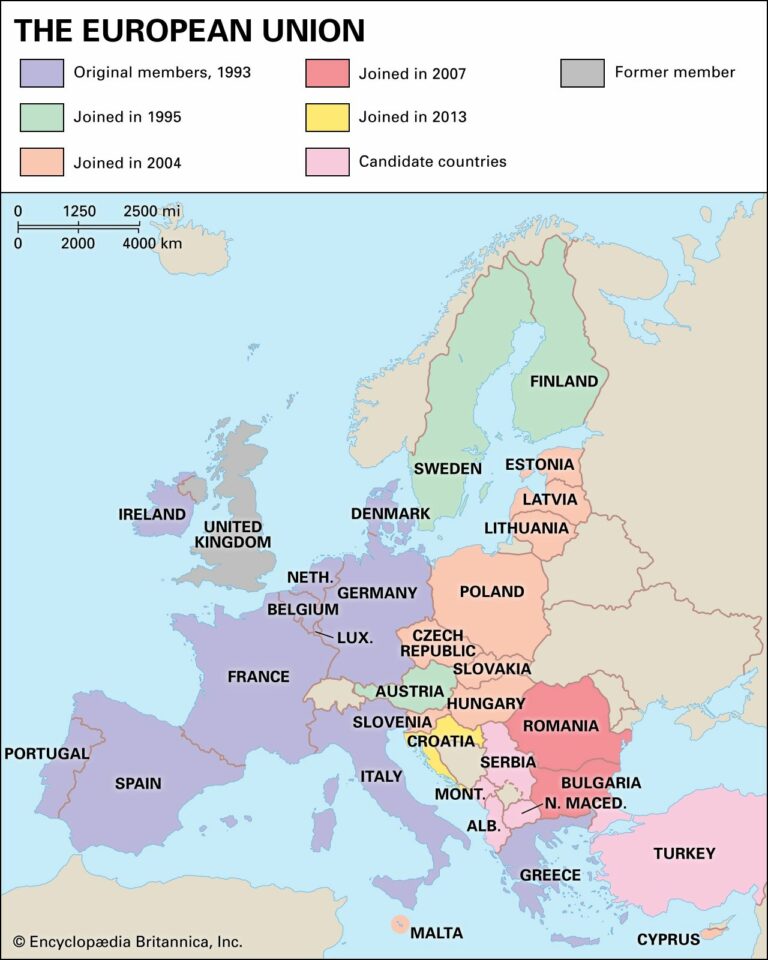Detroit Car Brand: The Enduring Legacy of American Automotive Excellence
Detroit Car Brand: The Enduring Legacy of American Automotive Excellence cars.truckstrend.com
An Engaging Introduction: Defining the Spirit of Motor City
When one speaks of the "Detroit Car Brand," it’s crucial to understand that we are not referring to a single corporate entity, a specific model line, or a unified product. Instead, the term encapsulates something far grander and more profound: it represents the collective identity, the historical legacy, and the ongoing influence of the major American automakers whose roots are inextricably intertwined with the city of Detroit. This includes giants like General Motors (GM), Ford Motor Company, and Stellantis (the parent company of brands like Chrysler, Dodge, Jeep, and Ram, all of which trace their significant heritage back to Detroit).
Detroit Car Brand: The Enduring Legacy of American Automotive Excellence
The "Detroit Car Brand" is a powerful symbol of American industrial might, innovation, and resilience. It embodies the spirit of the assembly line, the roar of the V8 engine, the practicality of the pickup truck, and the bold design of the muscle car. For over a century, Detroit has been the undisputed heart of the global automotive industry, shaping not only how cars are made but also how they are perceived and integrated into the fabric of daily life worldwide. This article delves into the multi-faceted concept of the Detroit Car Brand, exploring its historical significance, defining characteristics, modern evolution, and enduring relevance in a rapidly changing world.
The Big Three: Pillars of Detroit’s Automotive Identity
At the core of the "Detroit Car Brand" are the "Big Three" American automakers, each with a distinct identity yet united by their shared heritage in Motor City.
General Motors (GM)
Founded in 1908, General Motors grew to become one of the world’s largest automakers, encompassing a diverse portfolio of brands. From the everyman appeal of Chevrolet cars and trucks, the rugged utility of GMC, the sophisticated luxury of Cadillac, to the refined practicality of Buick, GM has historically offered a vehicle for nearly every segment of the market. GM’s innovation spans from early electric starters to modern electric vehicles (EVs) like the Chevrolet Bolt and Cadillac Lyriq, consistently pushing technological boundaries while maintaining a strong manufacturing presence in Michigan.
Ford Motor Company
Established by Henry Ford in 1903, Ford revolutionized manufacturing with the introduction of the moving assembly line and the Model T, making automobiles accessible to the masses. The Ford brand itself is synonymous with dependability and versatility, producing iconic vehicles like the F-Series pickup truck (America’s best-selling vehicle for decades), the legendary Mustang, and a wide array of SUVs. Its luxury arm, Lincoln, offers premium vehicles known for their comfort and distinctive American design, reinforcing Ford’s multifaceted contribution to the Detroit automotive narrative.
Stellantis (with Deep Chrysler Roots)

While Stellantis is a multinational automotive conglomerate formed from the merger of Fiat Chrysler Automobiles (FCA) and PSA Group, its American roots are firmly planted in Detroit through the legacy of Chrysler. Walter P. Chrysler founded his company in 1925, quickly establishing it as an engineering innovator. Today, the Stellantis portfolio includes quintessentially American brands like Jeep (renowned for its off-road capability), Dodge (known for its performance and muscle cars), Ram (a powerhouse in the truck segment), and the Chrysler brand itself, which continues to offer family-oriented vehicles. These brands collectively represent a significant portion of the Detroit Car Brand’s spirit, particularly in the truck and performance vehicle segments.
These three giants, with their vast manufacturing facilities, research and development centers, and headquarters strategically located in and around Detroit, have shaped the city’s economic and cultural landscape, defining what it means to be a "Detroit Car Brand."
Historical Roots and Evolution: From Assembly Line to Global Powerhouse
The story of the Detroit Car Brand is one of relentless innovation, incredible growth, and remarkable resilience.
The Dawn of the Automobile Age: In the late 19th and early 20th centuries, Detroit emerged as the natural hub for the burgeoning automotive industry due to its strategic location, access to raw materials, skilled labor, and pioneering spirit. Visionaries like Henry Ford, Ransom E. Olds, and the Dodge brothers laid the groundwork for what would become "Motor City."

The Assembly Line Revolution: Henry Ford’s introduction of the moving assembly line in 1913, coupled with the affordability of the Model T, democratized the automobile, transforming it from a luxury item into an indispensable tool for the average American. This innovation propelled Detroit to the forefront of global manufacturing, establishing it as the industrial capital of the world.
Post-War Golden Age: The mid-20th century marked a golden era for the Detroit Car Brand. Prosperity fueled demand for bigger, more powerful, and more stylish cars. This period saw the rise of iconic designs, the proliferation of V8 engines, and the establishment of global dominance for American automakers.
Challenges and Reinvention: The oil crises of the 1970s, increasing foreign competition from efficient Japanese and European manufacturers, and economic downturns presented significant challenges. Detroit faced questions about its quality, fuel efficiency, and adaptability. However, the Detroit Car Brand demonstrated remarkable resilience. Through significant investments in technology, quality control, and a renewed focus on consumer needs, the industry began a slow but steady recovery. The 2008-2009 financial crisis and subsequent government bailouts forced a radical restructuring, leading to leaner operations, a sharper focus on core strengths, and an accelerated embrace of future technologies.
Today, the Detroit Car Brand is in a new phase of evolution, adapting to climate change concerns, digital transformation, and the shift towards electrification and autonomous driving.
Defining Characteristics of the "Detroit Car Brand"

The vehicles produced by Detroit’s leading automakers share several defining characteristics that contribute to the overall "Detroit Car Brand" identity:
- Innovation at Scale: From the assembly line to the first mass-produced V8 engines, automatic transmissions, and advanced safety features, Detroit has been a cradle of automotive innovation. Today, this translates into leadership in electric vehicle development, battery technology, and autonomous driving systems.
- Bold Design and Presence: Detroit vehicles often exude a sense of confidence, power, and distinct American styling. Whether it’s the muscular lines of a Dodge Challenger, the commanding presence of a Ford F-150, or the sophisticated elegance of a Cadillac, there’s an unmistakable design language that sets them apart.
- Performance and Capability: The Detroit Car Brand is synonymous with raw power and robust capability. This is evident in the legendary muscle cars, the segment-leading towing and hauling capabilities of American trucks, and the formidable off-road prowess of Jeep vehicles.
- Durability and Utility: Historically, Detroit cars were built to last and to serve practical purposes. This legacy continues, particularly in the truck and SUV segments, where American vehicles are renowned for their ruggedness, utility, and ability to handle demanding tasks.
- Resilience and Adaptability: The industry’s ability to weather economic storms, global competition, and technological shifts speaks volumes about its inherent resilience. The ongoing transition to electric vehicles and software-defined cars demonstrates a profound capacity for adaptation.
- Symbol of American Identity: For many, owning a vehicle from a Detroit brand is a statement of American pride, representing the nation’s industrial heritage, spirit of freedom, and pursuit of progress.
The Modern Landscape: Adapting to the Future
The Detroit Car Brand is not static; it is undergoing one of the most significant transformations in its history.
- Electrification Revolution: All three major Detroit automakers have committed billions of dollars to transition their lineups to electric vehicles (EVs). GM aims for an all-electric future, Ford is rapidly expanding its EV offerings (e.g., F-150 Lightning, Mustang Mach-E), and Stellantis is electrifying its iconic Jeep and Ram brands.
- Autonomous Driving and Software: Detroit is a key player in the race for autonomous driving technology, with significant investments in AI, sensor technology, and software development. Vehicles are becoming increasingly connected, offering advanced infotainment, over-the-air updates, and sophisticated driver-assistance systems.
- Global Collaboration: While rooted in Detroit, the brands operate on a global scale, engaging in partnerships and collaborations to leverage expertise and expand market reach.
- Manufacturing Advancements: Factories are becoming smarter, more efficient, and more sustainable, incorporating robotics, advanced materials, and sustainable energy practices.
- Talent and Innovation Hub: Detroit is actively re-establishing itself as a tech and innovation hub, attracting new talent and fostering a vibrant ecosystem of startups and research institutions focused on mobility solutions.
How to Choose a "Detroit Car Brand" Vehicle: Practical Advice
If you’re considering a vehicle from one of the Detroit brands, here’s how to approach your decision:
-
Define Your Needs:
- Purpose: Family hauler (SUV, minivan), daily commuter (sedan, compact SUV), workhorse (truck), performance enthusiast (muscle car), off-roader (Jeep)?
- Budget: What’s your comfortable price range for purchase, insurance, and running costs?
- Fuel Type: Gasoline, hybrid, or fully electric? Consider your charging access for EVs.
- Features: What are your must-have features (e.g., AWD, specific safety tech, infotainment)?
-
Research Specific Models:
- Once you’ve identified your general category (e.g., mid-size SUV), research specific models from GM (e.g., Chevrolet Equinox, GMC Terrain), Ford (e.g., Ford Escape, Bronco Sport), and Stellantis (e.g., Jeep Cherokee, Dodge Hornet).
- Read professional reviews (e.g., Consumer Reports, Edmunds, Car and Driver) and owner testimonials.
- Compare specifications: horsepower, fuel economy/range, cargo space, towing capacity, safety ratings (NHTSA, IIHS).
-
Prioritize Key Factors:
- Reliability: Check long-term reliability ratings. While older perceptions may linger, modern Detroit vehicles often rank highly in quality and dependability.
- Safety: Look for models with top safety ratings and advanced driver-assistance systems (ADAS).
- Resale Value: Research the expected depreciation of models you’re considering. Trucks and popular SUVs often hold their value well.
- Total Cost of Ownership: Factor in maintenance costs, insurance premiums, and fuel/charging costs over time.
-
Test Drive Thoroughly:
- Don’t just drive around the block. Take the car on highways, city streets, and even rougher roads if that’s typical for your usage.
- Test all features, from infotainment to climate control.
- Pay attention to ride comfort, handling, noise levels, and visibility.
-
Consider Financing and Incentives:
- Explore financing options through dealerships, banks, or credit unions.
- Ask about manufacturer incentives, rebates, or special financing rates that may be available.
- For EVs, inquire about federal tax credits or state-specific incentives.
-
After-Sales Support:
- Consider the dealership network for service and parts availability in your area. Detroit brands generally have extensive networks.
- Review warranty coverage and extended service plans.
By taking a systematic approach, you can confidently choose a vehicle that embodies the quality, innovation, and spirit of the Detroit Car Brand while meeting your personal needs.
Challenges and Solutions for the Detroit Car Brand
Despite its enduring legacy and ongoing transformation, the Detroit Car Brand faces several contemporary challenges:
-
Challenge: Legacy Infrastructure vs. New Technology: Shifting from internal combustion engine (ICE) production to EV manufacturing requires massive investment in retooling plants, retraining workers, and developing new supply chains.
- Solution: Strategic capital expenditure, phased transitions, and government partnerships to support infrastructure development and workforce retraining programs.
-
Challenge: Intense Competition from Tech Giants and New EV Startups: Companies like Tesla and tech giants entering the mobility space pose a significant threat, often perceived as more agile and innovative in software and battery technology.
- Solution: Accelerate EV and software development, leverage established manufacturing scale and quality control, and focus on unique strengths like trucks, SUVs, and luxury segments where Detroit brands have a strong heritage.
-
Challenge: Perceptions of Past Quality or Technology Issues: While modern Detroit vehicles are highly competitive in quality and technology, lingering perceptions from past decades can sometimes hinder market perception.
- Solution: Consistent delivery of high-quality products, robust marketing campaigns highlighting current innovations and awards, and transparent communication about reliability and safety.
-
Challenge: Attracting and Retaining Top Talent: The competition for software engineers, battery scientists, and AI specialists is fierce, with Silicon Valley often seen as more attractive.
- Solution: Fostering a vibrant innovation ecosystem in Detroit, offering competitive compensation and benefits, emphasizing the impact of working on tangible products, and collaborating with universities to build a talent pipeline.
-
Challenge: Supply Chain Disruptions: Global events, chip shortages, and raw material price volatility continue to impact production and profitability.
- Solution: Diversifying supply chains, building redundancy, investing in vertical integration for critical components like batteries, and fostering stronger supplier relationships.
By proactively addressing these challenges, the Detroit Car Brand can ensure its continued relevance and leadership in the global automotive industry.
Representative Pricing for Key Vehicle Segments from Detroit’s Leading Brands (GM, Ford, Stellantis)
It’s important to reiterate that "Detroit Car Brand" is not a single product with a unified price list. The following table provides representative price ranges for popular vehicle types offered by the major Detroit-rooted automakers (General Motors, Ford, and Stellantis brands like Jeep, Dodge, Ram, Chrysler). Prices vary significantly based on brand, model, trim level, options, and market conditions.
| Vehicle Type | Examples (Brand/Model) | Entry-Level Price Range (MSRP) | Mid-Range Price Range (MSRP) | High-End Price Range (MSRP) |
|---|---|---|---|---|
| Compact/Mid-size Sedan | Chevrolet Malibu, Chrysler 300 (limited availability) | $25,000 – $35,000 | $30,000 – $45,000 | $40,000 – $55,000 |
| Compact SUV | Chevrolet Trax, Equinox; Ford Escape, Bronco Sport; Jeep Compass, Renegade | $24,000 – $35,000 | $30,000 – $45,000 | $40,000 – $55,000 |
| Mid-size SUV | Chevrolet Blazer, Traverse; Ford Edge, Explorer; Jeep Grand Cherokee, Dodge Durango | $30,000 – $45,000 | $40,000 – $60,000 | $55,000 – $75,000 |
| Full-size SUV | Chevrolet Tahoe/Suburban; GMC Yukon; Ford Expedition; Jeep Wagoneer/Grand Wagoneer | $55,000 – $70,000 | $65,000 – $90,000 | $80,000 – $120,000+ |
| Compact/Mid-size Truck | Ford Maverick, Ranger; Chevrolet Colorado; GMC Canyon | $24,000 – $35,000 | $30,000 – $45,000 | $40,000 – $60,000 |
| Full-size Truck | Ford F-150; Chevrolet Silverado; GMC Sierra; Ram 1500 | $35,000 – $50,000 | $45,000 – $70,000 | $60,000 – $100,000+ |
| Performance/Muscle Car | Ford Mustang; Chevrolet Camaro; Dodge Challenger/Charger | $30,000 – $45,000 | $40,000 – $70,000 | $60,000 – $100,000+ |
| Electric Vehicles (EV) | Chevrolet Bolt EV/EUV, Blazer EV, Silverado EV; Ford Mustang Mach-E, F-150 Lightning; Cadillac Lyriq; Jeep Recon EV (future) | $28,000 – $50,000 | $45,000 – $70,000 | $60,000 – $100,000+ |
Disclaimer: All prices are manufacturer’s suggested retail prices (MSRP) and are subject to change. They do not include destination charges, taxes, title, license fees, or dealer-added options/markups. Specific trim levels and optional equipment can significantly impact the final price. Incentives and rebates may also affect the actual purchase price.
Frequently Asked Questions (FAQ) about the Detroit Car Brand
Q1: What exactly does "Detroit Car Brand" mean?
A1: "Detroit Car Brand" refers to the collective identity, historical legacy, and ongoing influence of the major American automakers whose primary roots and operations are in or deeply connected to Detroit. This primarily includes General Motors, Ford Motor Company, and the American brands under Stellantis (like Chrysler, Dodge, Jeep, and Ram). It’s not a single company or product, but rather a representation of American automotive excellence and its origins.
Q2: Who are the "Big Three" automakers?
A2: The "Big Three" traditionally refer to General Motors (GM), Ford Motor Company, and Chrysler (now part of Stellantis). These companies have historically dominated the North American automotive market and have deep ties to Detroit.
Q3: Is Detroit still relevant in the car industry?
A3: Absolutely. Detroit remains a critical hub for automotive innovation, research, development, and manufacturing. While global competition has intensified, the Big Three continue to invest heavily in the region, leading the charge in electric vehicle development, autonomous driving technology, and advanced manufacturing processes.
Q4: Are "Detroit cars" (American-made vehicles) reliable?
A4: Modern vehicles from Detroit-rooted brands are highly competitive in terms of reliability, quality, and technology. Perceptions from decades past are often outdated. Many models consistently receive high ratings from consumer reliability surveys and safety organizations. It’s always best to research specific models and their current reliability scores.
Q5: Are Detroit automakers competitive in the electric vehicle (EV) market?
A5: Yes, they are increasingly competitive. General Motors, Ford, and Stellantis have all committed significant resources to electrifying their lineups, introducing popular and well-received EVs like the Ford F-150 Lightning, Mustang Mach-E, Chevrolet Bolt EV/EUV, and upcoming electric Jeep and Ram models. They are leveraging their vast manufacturing scale and established dealer networks to accelerate EV adoption.
Q6: What is the future of Detroit’s automotive industry?
A6: The future of Detroit’s automotive industry is focused on transformation. It involves a rapid transition to electric and autonomous vehicles, integrating advanced software and connectivity into cars, and evolving manufacturing processes to be more sustainable and efficient. Detroit is also working to reinvent itself as a broader mobility and tech innovation hub, attracting diverse talent and fostering new startups.
Concluding Summary: The Enduring Roar of Motor City
The "Detroit Car Brand" is more than just a label; it is a living, evolving testament to American ingenuity, industrial might, and enduring resilience. It represents the collective spirit of General Motors, Ford, and the Detroit-rooted brands of Stellantis, whose innovations have shaped global mobility for over a century. From the revolutionary assembly line to the modern electric vehicle, Detroit’s automotive leaders have consistently adapted, innovated, and redefined what a car can be.
While facing new challenges in a globalized, technologically driven world, the Detroit Car Brand continues to roar, driven by a commitment to bold design, robust performance, and cutting-edge technology. It remains a powerful symbol of American aspiration and a vital force in the ongoing transformation of the automotive landscape, ensuring that Motor City’s legacy will continue to drive the future.




